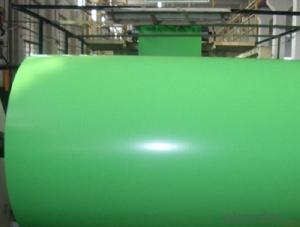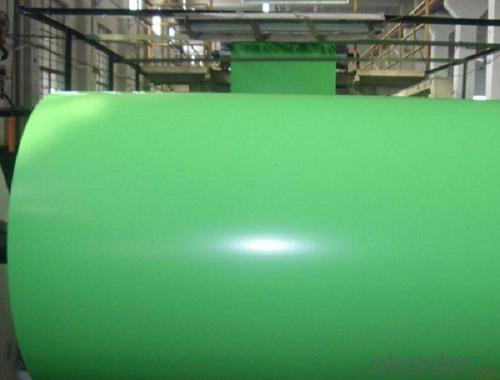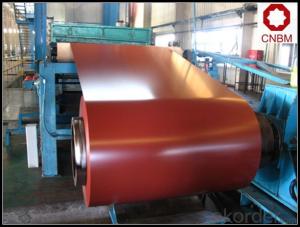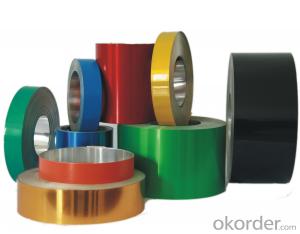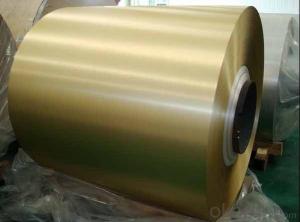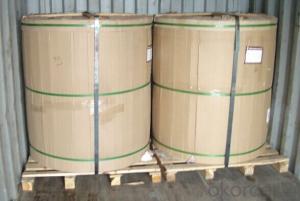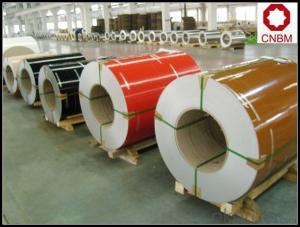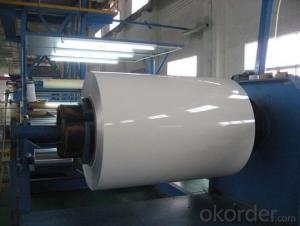Aluminum Coil Slitter for Color Coated Aluminium Coil for Aluminum Roller Shutter, 0.2 to 7mm
- Loading Port:
- Shanghai
- Payment Terms:
- TT OR LC
- Min Order Qty:
- 2.5
- Supply Capability:
- 5000 m.t./month
OKorder Service Pledge
OKorder Financial Service
You Might Also Like
Specification
Color Coated Aluminium Coil for Aluminum Roller Shutter, 0.2 to 7mm
l Product Introduction
Aluminium Coil is widely used in manufacturing aluminum thin sheet and aluminum foil. It is suitable for further machining with original standard quality. It is easy to be controlled and be manufactured to according to requirements.
l Product Specification
Product | Alloy | Thickness (mm) | Width(mm) |
ID (mm) | Application | |
Coating aluminum coil
| 1060, 1050, 1145,1235, 1035, 1100, 3003, 3103, 8011, 5052, 5005 | 0.1-2.0 | 50-1550 |
75,150, 200,300, 400,505 |
decoration, roofing
| |
1) Coating type: PVDF,PE,ACRYLIC.EPOXY.....
2) Gloss: According to customer request.
3) Coating thickness (not including aluminium base): From 6 micron to 38 micron are available.
4) Flexibility (T-bend): 2T
l Packaging & Delivery
Packaging detail: Standard seaworthy exporting carton, Wooden pallets, waterproof paper and plastic coverage or as customer's requirements
Delivery detail: about 25 days from received oiginal L/C or advanced payment
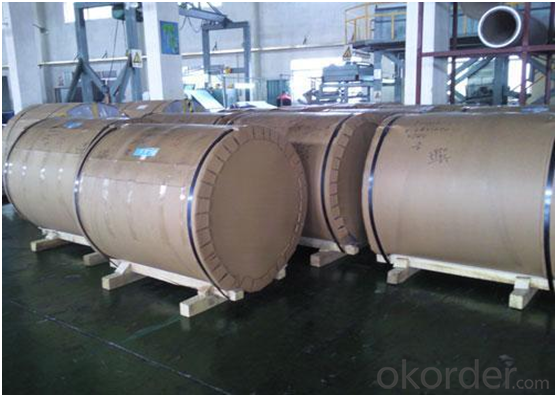
l Company Profile
CNBM International Corporation, China National Building Materials (Group) Corporation, is one of the largest companies in China building material & equipment industry, with 42,800 employees and sales in 2005 of US Dollar 4.395 billion. In 2006, China National Building Material Company Limited was listed on Hong Kong Stock Market with the stock code as 3323.
Color coated aluminium coil is one of the popular product in the market of CNBM. With advanced technology and equipment, CNBM has sold its hight quality color coated aluminium coil to the world.
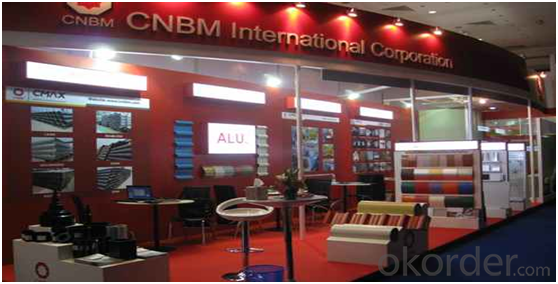
l CNBM World Wide
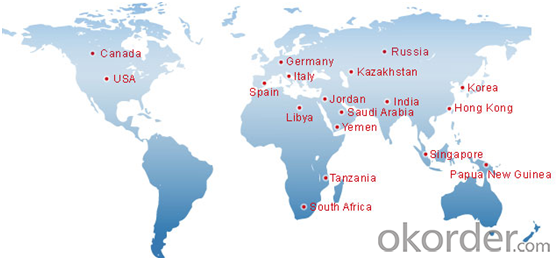
l Product Images
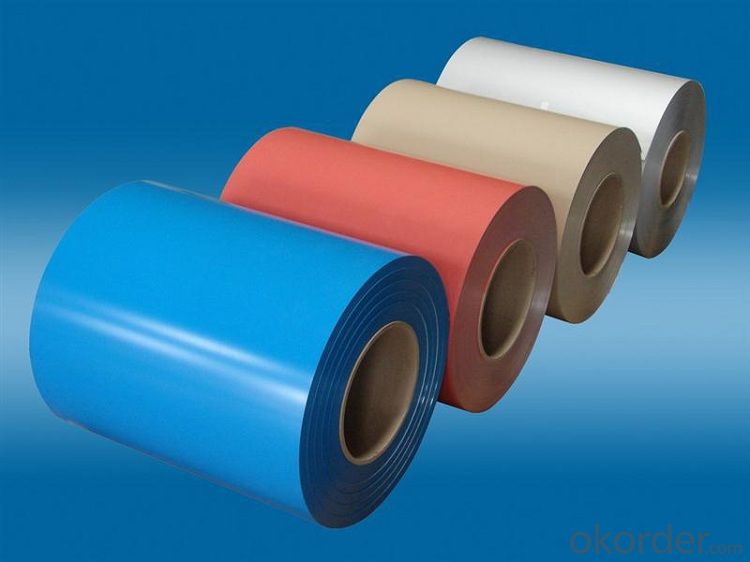
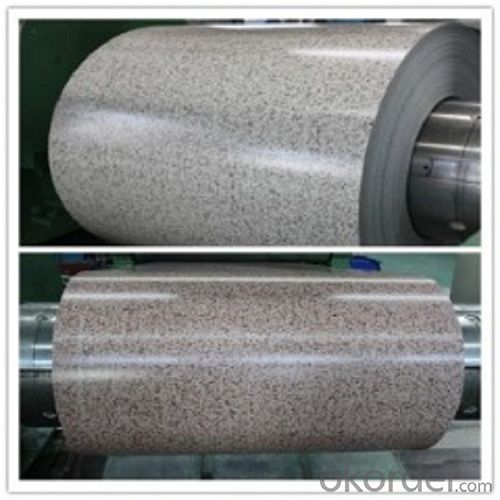
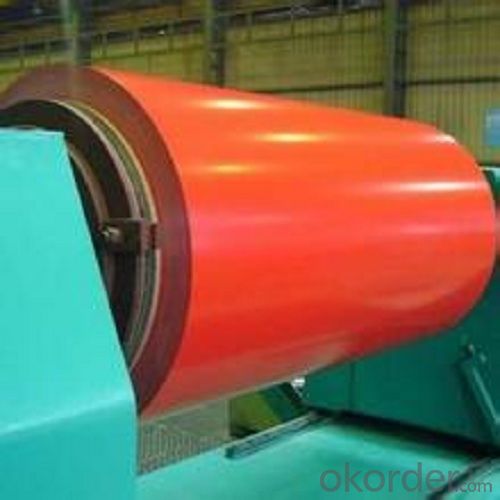
l Certificates
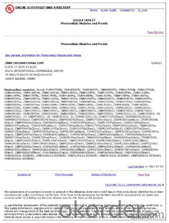
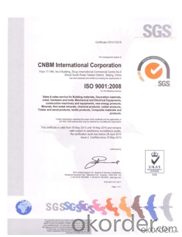
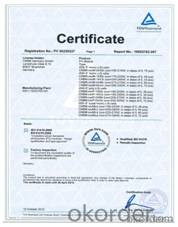
l FAQ
Q: Do you provide free samples?
A: Yes, free samples will be sent to you on freight at destination.
Q: Can I get your latest products catalogue?
A: Yes, it will be sent to you in no time.
Q: What is the MOQ?
A: 2.5 tons
Q: What are your payment terms?
A: We accept L/C, T/T.
- Q: What are the potential environmental impacts of aluminum coil production?
- The potential environmental impacts of aluminum coil production include deforestation due to the extraction of bauxite, water pollution from the chemicals used in the refining process, air pollution from the release of greenhouse gases during smelting, and energy consumption, as aluminum production requires a significant amount of electricity. Additionally, the disposal of waste materials and by-products can contribute to soil contamination if not managed properly.
- Q: Can you create a tank, AFV, IFV etc. from aluminium or is this just a stupid idea that would kill everyone inside?
- Armored Personnel carriers are made of Aluminium and pretty hard. I saw an APC, the old M113A2, take a 7.62 round (by accident) at point blanck range and it just nicked it up a bit. it wouldn't take a shaped charge or a Sabot round though. Aluminum does have one advantage of steel with respect to Sabot rounds, if the hatches are open on an APC, the Sabot round will just go in and out without causing a whole lot of damage, unless of course it struck a combustable or the engine, or a crewman. The old M551 was made of Aluminum and styrofoam, it could float nicely and could be dropped by parachute. It was a cool little tank, unfortunately, it only held 14 maingun rounds. It was a tiny tank with a huge gun. Also too, you could create a tank out of aluminum, and then use bolt on or applique steel armor and also you could bolt on Explosive Reactive Armor, to stop the effects of a shaped charge type round. The design of a tank is important too. If you plan on a defensive strategy, you want a tall tank that is slope a lot in front so it can easily hide behind cover and burms and only show a small portion to the enemy and so, use the earth as armor. If your over all strategy is offensive, you want a squat tank that is small and difficult to hit at long range. The old M60 tank and the T-55 are good examples of a defensive tank and an offensive design.
- Q: Is it possible to construct a portable speaker or speaker docking station using aluminum coils?
- <p>Yes, you can use aluminum coils in the construction of a portable speaker or speaker docking station, but they are not the primary component. Aluminum coils can be used in the speaker's electromagnetic parts, such as in the voice coil of the speaker driver or in the transformer of a docking station. However, the main components of a speaker include a diaphragm, voice coil, magnet, and enclosure, while a docking station would require a connector for the device, an amplifier, and possibly additional circuitry. The aluminum coil's role is to facilitate the magnetic field interaction with the voice coil, which converts electrical signals into sound waves. It's essential to consider the entire design and other necessary components when building such devices.</p>
- Q: What specific tools are required for handling and working with aluminum coils?
- <p>Working with aluminum coil typically requires specialized tools to ensure safety and efficiency. Essential tools include a coil cutter for precise cutting, a coil car for easy transportation, and a decoiler for unrolling the coil. Additionally, protective gloves and safety glasses are crucial for personal protection. For more complex tasks, a shear machine or press brake may be necessary for shaping the aluminum. Always follow safety guidelines and use the appropriate tools for the job to prevent accidents and ensure quality work.</p>
- Q: Can aluminum coils be used for electrical conductivity purposes?
- No, aluminum coils cannot be used for electrical conductivity purposes. While aluminum is a good conductor of electricity, it is not suitable for use in coils specifically designed for electrical conductivity. Aluminum has a relatively high resistance compared to other materials such as copper or silver, which are commonly used for electrical conductivity purposes. Additionally, aluminum has a lower melting point than copper, which can lead to overheating issues when used in coils for high electrical currents. Therefore, it is more common to use materials like copper or silver for electrical conductivity purposes, especially in applications where high conductivity and low resistance are required.
- Q: What are the potential applications of coil-stucco aluminum coils?
- Coil-stucco aluminum coils have various potential applications due to their unique properties. They are commonly used in the construction industry for roofing, siding, and facades, as their stucco surface provides enhanced durability and weather resistance. These coils are also used in the manufacturing of appliances, such as refrigerators and ovens, as well as in the automotive industry for trim and decorative purposes. Furthermore, coil-stucco aluminum coils can be utilized in the packaging industry for containers and cans due to their lightweight and corrosion-resistant nature.
- Q: How do aluminum coils compare to copper coils in terms of conductivity?
- The conductivity properties of aluminum coils and copper coils differ. Copper is renowned for its exceptional electrical conductivity, making it the preferred option for applications where maximum efficiency is vital, like electrical wiring and motor windings. In comparison, copper coils possess a considerably higher electrical conductivity than aluminum coils. Consequently, copper coils can transmit electricity more efficiently, resulting in decreased power losses and enhanced overall performance. Conversely, aluminum coils exhibit lower electrical conductivity when compared to copper coils. Although aluminum is still a capable conductor of electricity, it is not as efficient as copper. This implies that aluminum coils may experience increased power losses and reduced efficiency in contrast to their copper counterparts. Nevertheless, aluminum coils possess their own advantages in certain applications, such as being lighter and more cost-effective. Ultimately, the choice between aluminum and copper coils hinges on the specific requirements of the application, with copper being favored for its superior conductivity properties.
- Q: Is it possible to create personal roofing material using aluminum coils?
- <p>Yes, you can use aluminum coils to make your own roofing material. Aluminum is a popular choice due to its durability, lightweight, and resistance to corrosion. To create roofing material, you would need to cut the coils to appropriate lengths, form them into panels, and possibly add protective coatings or finishes. However, this process requires specialized equipment and knowledge of roofing construction to ensure the material is safe, watertight, and structurally sound. It's also important to consider local building codes and regulations that may affect the suitability of homemade roofing materials.</p>
- Q: Inquiry about the feasibility of using aluminum coils for crafting jewelry or accessories.
- <p>Yes, you can use aluminum coils to make jewelry or accessories. Aluminum is lightweight, durable, and non-allergenic, making it a popular choice for crafting. It's easy to shape and work with, and it's also cost-effective compared to precious metals. You can create rings, bracelets, necklaces, and various other decorative items. Just ensure you use the right tools and safety precautions when working with metal, and finish your creations with appropriate polishing and sealing to enhance their appearance and longevity.</p>
- Q: What are the various classifications of aluminum coil grades?
- <p>Aluminum coils are classified into different grades based on their composition and properties. The most common grades include 1000 series (99% pure aluminum), 3000 series (aluminum-manganese alloys), 5000 series (aluminum-magnesium alloys), and 6000 series (aluminum-silico-magnesium alloys). Each series has specific characteristics, such as corrosion resistance, formability, and strength, which determine their suitability for various applications like construction, transportation, and packaging. Additionally, there are 2000 series (aluminum-copper alloys), 4000 series (aluminum-silicon alloys), 7000 series (aluminum-zinc-magnesium alloys), and 8000 series (other alloys), each with unique properties and applications.</p>
Send your message to us
Aluminum Coil Slitter for Color Coated Aluminium Coil for Aluminum Roller Shutter, 0.2 to 7mm
- Loading Port:
- Shanghai
- Payment Terms:
- TT OR LC
- Min Order Qty:
- 2.5
- Supply Capability:
- 5000 m.t./month
OKorder Service Pledge
OKorder Financial Service
Similar products
Hot products
Hot Searches
Related keywords
